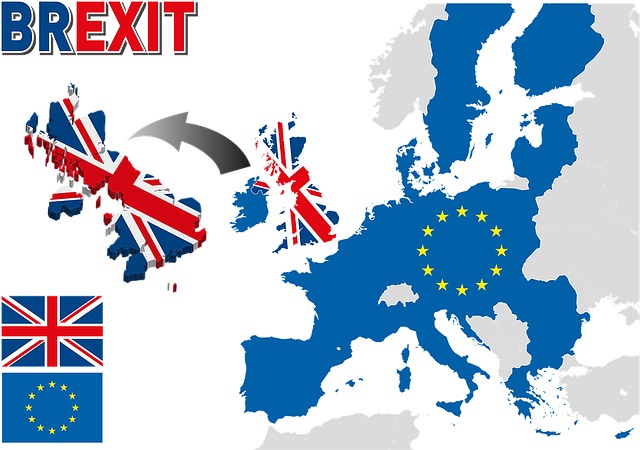
Why the sequencing of the Brexit negotiations should be abandoned

In
In June 2017, the EU Council adopted its guidelines for the Brexit negotiation. They were based on a “a phased approach to negotiations”. This means that the negotiators have to make “sufficient progress” on the conditions of the UK’s withdrawal before beginning to discuss the future EU/UK partnership.
*****
Why the sequencing of the Brexit negotiations
should be abandoned
In June 2017, the EU Council adopted its guidelines for the Brexit negotiation[1]. They were based on a “a phased approach to negotiations”. This means that the negotiators have to make “sufficient progress” on the conditions of the UK’s withdrawal before beginning to discuss the future EU/UK partnership. These conditions cover the protection of EU citizens in the UK, the financial settlement, and the fate of the Good Friday Agreement concerning Northern Ireland[2].
This sequencing has become a source of difficulty for the UK, since this approach requires the UK to make major concessions before beginning to discuss nicer things. To be fair, this is not the most difficult problem (which is the persistent inability of the UK government, and Labour, to define precise positions on most topics). But the sequencing does not help, and even strengthens this inability. So it is worthwhile to reflect on its objective.
The sequencing is not a legal obligation. According to Article 50 TEU, “the Union shall negotiate and conclude an agreement with that State, setting out the arrangements for its withdrawal, taking account of the framework for its future relationship with the Union.”. The notion of such a future framework can mean a general outline as well as a cooperation treaty. In any case, nothing in the text forbids discussing the withdrawal arrangement and the future framework simultaneously.
So the sequencing is a tactical choice of the EU. This means it needs to be assessed on the basis of its benefits and costs. On one side, the benefits are not obvious. Even if one debates about the withdrawal arrangement before the future framework, it is adventurous to expect the UK will contribute dozens of billions into the EU budget post 2019 without any trade agreement. On the other side, the costs are mounting. Firstly, this approach implies that all initial concessions have to come from one side of the table. This is hardly an incentive to compromise. Secondly, it limits the scope of trade-offs. Thirdly, it makes the negotiations more difficult by disconnecting connected topics. For example, the future status of North Ireland border is of course dependant on the future regime covering free movement of goods and people. The future status of EU citizens in the UK could be linked to the future arrangement about free movement of persons. The future ECJ role regarding the withdrawal matters could be linked to its role regarding the future trade relationship. And, of course, financing links both the withdrawal arrangement and the future trade framework. In sum, the chosen tactic accentuates artificially the adversarial side of the negotiations and weakens the cooperative one.
The sequencing naturally weakens the UK government, which pleases some countries and institutions. Tactically this makes them feel stronger, yet strategically this satisfaction is quite misguided. It will not serve EU interests over the longer term to increase tensions inside the UK government, to paralyze UK institutions, and even to provoke the possibility of new elections. The latter could perfectly lead to a new hung Parliament and/or an economic crisis. At present, there is much complacency in the Brussels corridors, where a lot of people repeat that a negotiation crash would hurt violently the UK. So it would, but it would also provoke major damage to the unity of the EU-27, and to the promises of future EU/UK cooperation. Feeling that others will be more hurt than yourself in a train crash remains a quite weak source of satisfaction. And we will still need to maintain good cooperation between the EU and the UK in many domains later: many external threats will require as much.
One way to get out of the present conundrum would be for the UK to present precise proposals (not simple reflection papers) on all withdrawal matters, underlining the multiple connections with a future deal. These proposals would be conditioned to a balanced transition deal. After such an effort, the EU would need to make an effort on its side and proclaim that there are sufficient perspectives to broaden the scope of negotiation.
It is important for the future not only of the EU/UK relationship but also of Article 50 TFEU that the EU shows as much good faith as possible in the negotiations, as required by public international law – and also by common sense. The exit procedure must absolutely not be seen as a multiplication of obstacles and humiliations. Already now, smart observers reflect correctly that the subliminal message of the European Council’s president is to block Brexit[3]. Furthermore, the EU-27 must not offer an alibi to the UK clan which wants the negotiation to fail. The EU has essential priorities : the main components of the single market, the balance between economic access and legal constraints, and the reasonable protection of EU citizens in the UK. On these, it can’t make concessions. The rest does not matter all that much. Hubris has been the most common threat for politicians from the beginning of history. The common negotiators think only about ultimate immediate gains, the best already think, like Basil Liddell Hart, about the other side of the hill, and the next deals’ bigger gains.
Franklin DEHOUSSE
Professor at the University of Liège
Former Special representative of Belgium
Former judge at the Court of justice of the European Union
[1] http://www.consilium.europa.eu/en/press/press-releases/2017/04/29-euco-brexit-guidelines/
[2] See for example M. Barnier’s speech in the Italian Parliament 21/9/2017
http://europa.eu/rapid/press-release_SPEECH-17-3404_en.htm
[3] http://jackofkent.com/2017/09/brexit-diary-what-does-donald-tusk-mean-by-realism/
(Photo credit: Pixabay)